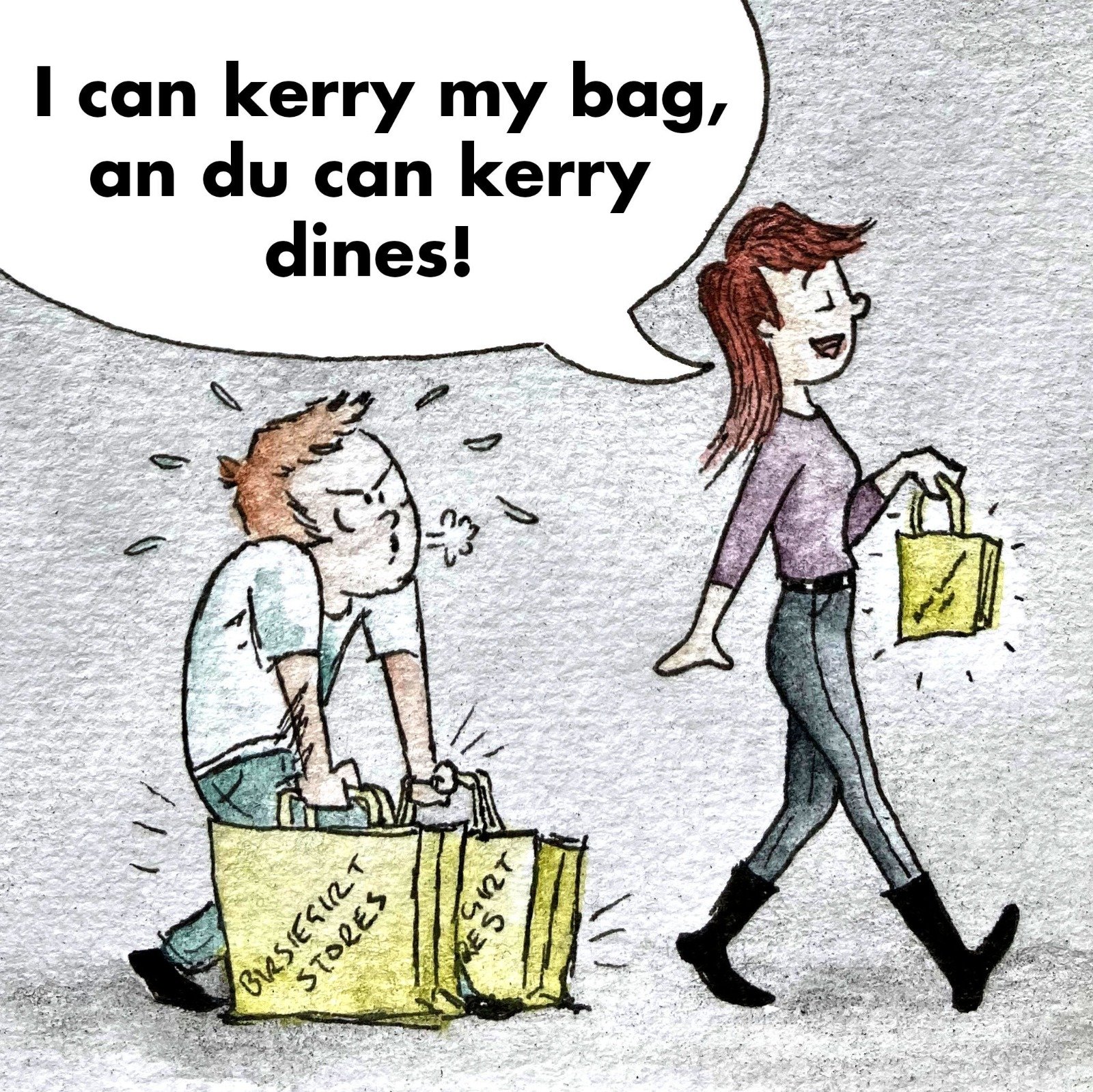Inflected possesives
Da possesive pronoun pits across wha aans somethin. In Standirt English de’r onnly ee form per body, it døsna maitter hoo mony o da aaned items de ir:
– You carry your bag and I'll carry mine.
– You clean your boots and I'll clean mine.
– He can carry his bag and you can carry yours.
– He can dry his boots and you can dry yours.
In baith da caesses abün da first example is spaekin aboot onnly ee item an da siccint is spaekin tae twa items, but da possesive pronoun (mine, yours) bides da sam.
Hoosumivver, in some varieties o Shaetlan, da possesive pronoun is inflected fir da plural:
– Du kerry dy bag an A’ll kerry mine.
– Du clean dy bøts and A’ll clean mines.
– He can kerry his bag an du can kerry dine.
– He can dry his bøts an du can dry dines.
Whin de’r mair as ee aaned item, da 1st an 2nd sg possesive hae tae be idda plural form (aa idders end in ‑s idda baess form: his/hers/(h)its/wirs/yirs/dirs. So dey hae nae richt wye tae cheinge meaneenfilly) Dis is a richt plural form. Somethin laek *Du can kerry dy bag an A’ll kerry mines wid soond wrang is dis varieties. Dis is da sam as in da Scandinavian languages, whar da possesive haes tae be in da plural form if it spaeks aboot mair as ee item:
– Du kan bära din väska så bär jag min.
– Du kan torka dina stövlar så torkar jag mina.
Dis wis documentit alreidy in 1894 (Ross 1893-94: 115). Hit’s inherited fae Aald Norse, whar da possesive haed tae match da noun(s) dey wir spaekin aboot. Firbye dat dis wis wint tae be da caess in Aald English, bit dat wis lost alreidy in Middle English. Tae “correct” da Shaetlan plural possesive forms wid be wrang: dis is a really aald grammatical differ in Shaetan at’s bøn hoidin afore wir very een.
Note: Da Scots form mines spaeks aboot singular items: –Wi Jack’s Bonnie face (sae bonnie!) hingin ower mines... [OED, sv]. Hit haes a different formation history fae da Shaetlan plural possesive forms an sudna be mixed up wi dem. Da Scots form is nidder new, nor slang, nor a døless wye o spaekin an is attestit fae 1661 at da laetest.
Reference:
Ross, David. 1893-4. Place-names and dialect of Shetland. Proceedings of the Philosophical Society of Glasgow, 108-118. Glasgow: John Smith & Son.
Pictir: Julie Dennison

